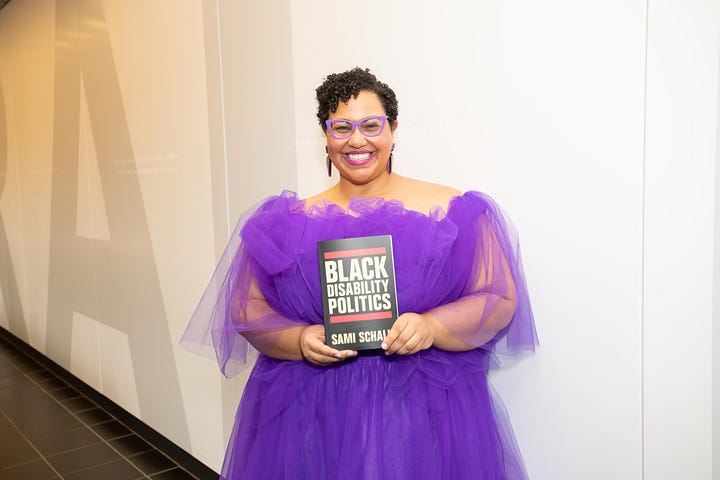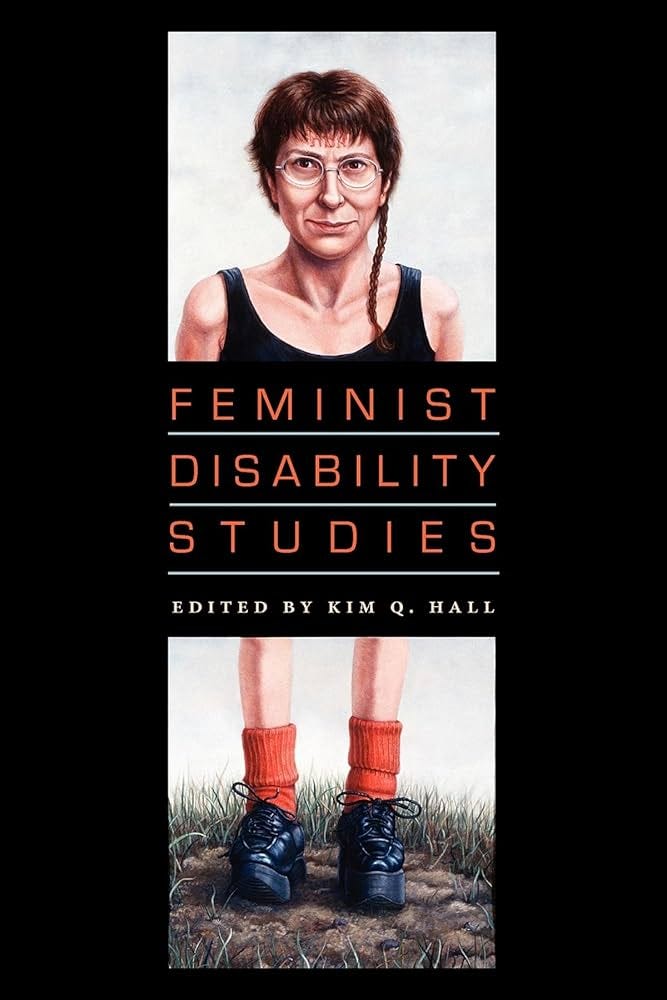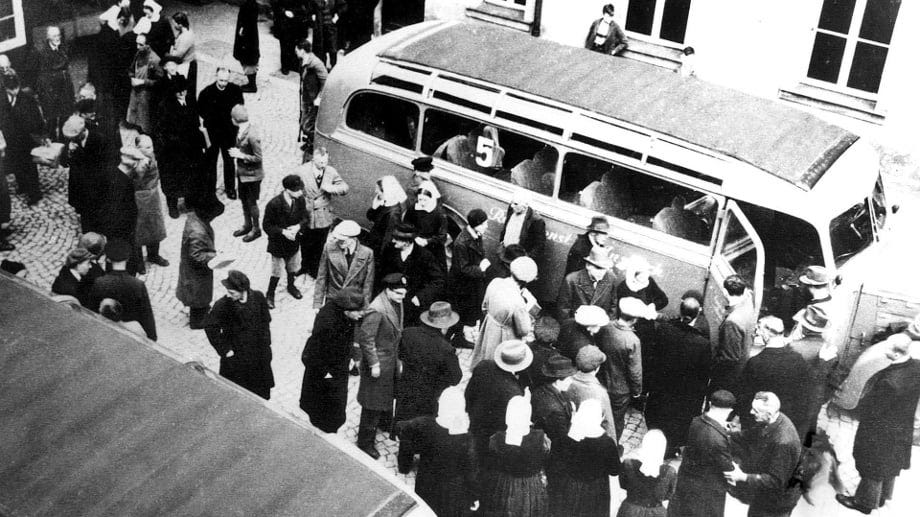Vulnerable Strength
Pope Francis Taught Us a Valuable Lesson of How the Sick and Disabled Remain Vital and Should Not Be Ignored or Dismissed.
I want to celebrate Harvard University for not bending to the Mump-Nazi Reich. Until May 31, I am offering faculty, staff and students with an .edu e-mail 50% off forever.
I hope more educational institutions, especially those in higher education, learn from Harvard’s and history’s example of higher education remaining bold against the face of tyranny and autocracy.

It is no secret that Hair Plug Hitler and Useful Idiot Krasnov have always been eugenicists. Neither is it a secret that so are a lot of Americans.
No matter that Useful Idiot Krasnov ridiculed New York Times reporter Serge F. Kovaleski or his nephew Fred Trump III's revelation that Useful Idiot Krasnov believes Fred’s disabled son William is better off dead. Seventy-seven million Americans still elected Useful Idiot Krasnov President of the United States in 2016 and 2024. Ninety million more in 2024 didn’t bother to vote at all.
No shock that Useful Idiot Krasnov and MAGA welcomed Roadkill Robert into their racist and bigoted fold. Because of his anti-vaccine and eugenicist beliefs, Democratic Senators unanimously voted against confirming the anti-Kennedy Legacy as chairman of the Health and Human Services Department.
No shock either that the only Republican to join Democratic Senators was Mitch McConnell. Why? Because McConnell survived polio and knows the importance of vaccines.
The Heritage Foundation’s Satanic Bible views chronic illness, disability and accessibility “woke” (See endnote 2 in Project 2025's Department of Health and Human Services’ policy chapter). My community is not immune from Mump-Nazi hatred. It believes the disabled and chronically ill are useless and won't be missed if we die.
But like with everything else, Mump-Nazis and Project 2025 are wrong.
Pope Francis’s death yesterday nearly a month after his discharge from a Rome hospital where he battled double pneumonia forces people to recognize the vulnerable strength of Pope Francis’s and the disability community. Francis’s service and work following his hospital discharge refute the idea that the disability community cannot contribute and live full lives.
Because his advanced age, reduced lung capacity and my own experience with pneumonia, I had prepared for Pope Francis to die during his hospitalization. My preparation had intensified when his condition had worsened.
How thrilled and grateful I was that Pope Francis had not only survived but returned to his service and work. For almost a month before his death, he demonstrated his vulnerable strength with his demanding and busy schedule that required pastoring, service and administration.
Of course The Pope’s passing on Easter Monday has saddened me. Stronger though is my pride. Francis’s resilience and agency informs us that the ill and disabled should never be swept aside.
Best of all, his meditations and prayers for Good Friday’s Way of the Cross even managed to get some digs at Useful Idiot Krasnov and His Merry Band of Blackshirts. You can read his Way of the Cross meditations here.
Like Pope Francis after he had part of a lung removed decades before and his later illnesses, I am not defined as a human being by my disabling chronic illness. I still contribute to society, work and my family. However, I cannot ignore how every day my disabling chronic illness shapes and impacts my life.
This becomes clearer when I encounter a society that still remains inaccessible to the disabled. I believe in the social model of disability theory—it is society’s ableist attitudes and lack of accessibility that disable my community and me.
Along with society becoming more accessible (that is the “A” in DEIA), to further help me contribute to society, I also have to remain mindful of how much energy I “spoon out” every day due to my autoimmune fatigue.
Because fatigue often accompanies multiple sclerosis and other autoimmune diseases, prioritizing where to direct my energy forces me to attend to my most important responsibility and work first. I cannot spoon out the bulk of my limited energy on matters of low-importance and trivialities. Battling online trolls is one such example of misspent energy.

Seven years ago despite my spooned energy going toward my daughter, my income-generating work of teaching and tutoring and writing in that order (writers are hardly and rarely paid), I had enrolled part-time in a graduate women’s and gender studies program. I had wanted to study and research women’s autobiography, sexual violence and feminist disability studies.


While I had learned a lot from this graduate program and enjoyed my time in it, the program ultimately disappointed me. Disability was discussed for only one week in my Queer Studies class. The program focused on intersectionality theory, but it did not include individual classes on feminist disability studies.
I felt it this program ignored and dismissed disability. This ranks as one of the reasons why I left it before finishing the degree and writing my thesis.
Ultimately the program failed in its intersectionality approach because no classes were offered to explore how disability specifically affected women of all races and ethnicities along with people in the LGBTQIA+ community. What depresses me about this graduate program is it just reflected how the world continues to forget about the chronically ill and disabled.
Because of the program’s lack of feminist disability education, most of my education has been and remains self-directed. Because of this self-education, I found a peer-reviewed article written by feminist scholar Janell Hobson when I researched and composed my final essay for my feminist genealogies class. Hobson’s essay has had a profound impact on me, and I’ve cited it in previous posts.
Frontiers: A Journal of Women’s Studies published Hobson’s “Of ‘Sound’ and ‘Unsound’ Body and Mind: Reconfiguring the Heroic Portrait of Harriet Tubman.” Her scholarship supported her argument that American society and culture erases Tubman’s epilepsy from her life story and historical impact.
In my June 29, 2024 post, I shared that Hobson declared
Tubman’s “vulnerable strength” shatters the stereotype that the disabled -- more specifically disabled women -- are weak. It also upends the ableist belief that disability can be overcome, which creates inaccurate historical and creative narratives.
“Of ‘Sound’ and ‘Unsound’ Body and Mind” analyzes how mythologizing Tubman into a “superwoman” has hidden her disability and its impact on her life and social justice work. Hobson asserts this omission ignores how chattel slavery abused and disabled not only Tubman’s body but the collective African American body. Ultimately and most importantly, she proves that ignoring Tubman’s disability disallows Tubman’s agency.
The disabled and chronically ill are not weak. We are not disposable. What cannot be denied, however, is that we are at risk right now in the United States.
The harm Project 2025 and the Mump-Nazi Reich have done and continue to do to the disability community must be recognized and stopped. To not stop this harm allows it to move at a gradual pace toward a stealth Aktion-T-4-2.0 program. Nazi Germany’s Aktion T-4 euthanized people with physical and intellectual disabilities early in Hitler’s tyrannical regime.

Before the November 5, 2024 U.S. Presidential Election, it was clear that Useful Idiot Krasnov and his deplorable Reich would target and attack the disabled. Now disabled babies, toddlers, pre-schoolers, school-age children or a child’s special education teacher is now affected by the ableist and eugenicist policies of Project 2025 and the Mump-Nazi Reich. For chronically ill and disabled adults who use disability and Medicaid benefits, social security along with that government health program are being dismantled with the goal of ending both.
As much as people and governments forget and abuse the disabled, we refuse to disappear. Throughout American history, the disabled and chronically ill have used their vulnerable strength to contribute to and improve society. Franklin Delano Roosevelt is only one example.
Because disability had a greater stigma during FDR’s lifetime, he made sure he was not publicly viewed using his wheelchair to work and live his life. Photos of him sitting in his wheelchair are rare in addition to profound.
Regardless of his paralysis that resulted from polio, FDR lead the United States during the Great Depression and World War II. We also should not forget that Abraham Lincoln led and won The Civil War while living with clinical depression.
I mention all this because the disabled don’t want pity. We don’t want to be inspiration porn. We want and must be viewed as full human beings who contribute to and change society for the better. Accommodations and full acceptance help us achieve our contributions.
Centuries and decades after Lincoln and FDR, ableism, stigma and ignorance remain threaded into the United States’ social and cultural fabric. Once those threads unravel, perhaps the disabled will no longer be ignored or attacked. Perhaps the “A” in DEIA will no longer be forgotten. Perhaps the world will see us as the leaders we always have been and can be.









So agree.